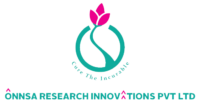Stem Cells – A boon in medical research
John B. Gurdon of the University of Cambridge and Shinya Yamanaka of Kyoto University were awarded the Nobel Prize in Physiology or Medicine in 2012 for the discovery that mature cells can be reprogrammed to become pluripotent. This groundbreaking discovery has opened up exciting possibilities for studying and treating diseases using stem cells.
Studies of human embryonic stem cells will yield information about the complex events that occur during human development. A primary goal of this work is to identify how undifferentiated stem cells become the differentiated cells that form the tissues and organs. Some of the most serious medical conditions, such as cancer and birth defects, are due to abnormal cell division and differentiation. A more complete understanding of the genetic and molecular controls of these processes may yield information about how such diseases arise and suggest new strategies for therapy.
Perhaps the most important potential application of human stem cells is the generation of cells and tissues that could be used for cell-based therapies. Today, donated organs and tissues are often used to replace ailing or destroyed tissue, but the need for transplantable tissues and organs far outweighs the available supply. Stem cells, directed to differentiate into specific cell types, offer the possibility of a renewable source of replacement cells and tissues to treat diseases including macular degeneration, spinal cord injury, stroke, burns, heart disease, diabetes, osteoarthritis, and rheumatoid arthritis.
Human stem cells are currently being used to test new drugs. New medications are tested for safety on differentiated cells generated from human pluripotent cell lines. Other kinds of cell lines have a long history of being used in this way. Cancer cell lines, for example, are used to screen potential anti-tumor drugs. The availability of pluripotent stem cells would allow drug testing in a wider range of cell types.
Of all the stem cells, Mesenchymal stem cells (MSCs) are more specifically of therapeutic interest because they represent a population of cells that have the potential to treat a wide range of acute and degenerative diseases. MSCs are also advantageous over other stem cells types for a variety of reasons. First, they avoid the ethical issues that surround embryonic stem cell research. Second, repeated studies have found MSCs to be immune-privileged, which make them an advantageous cell type for allogeneic transplantation. MSCs reduce both the risks of rejection and complications of transplantation. Recently, there have been advances in the use of autologous mesenchymal stem cells to regenerate human tissues, including cartilage, meniscus, tendons, bone fractures, and more

